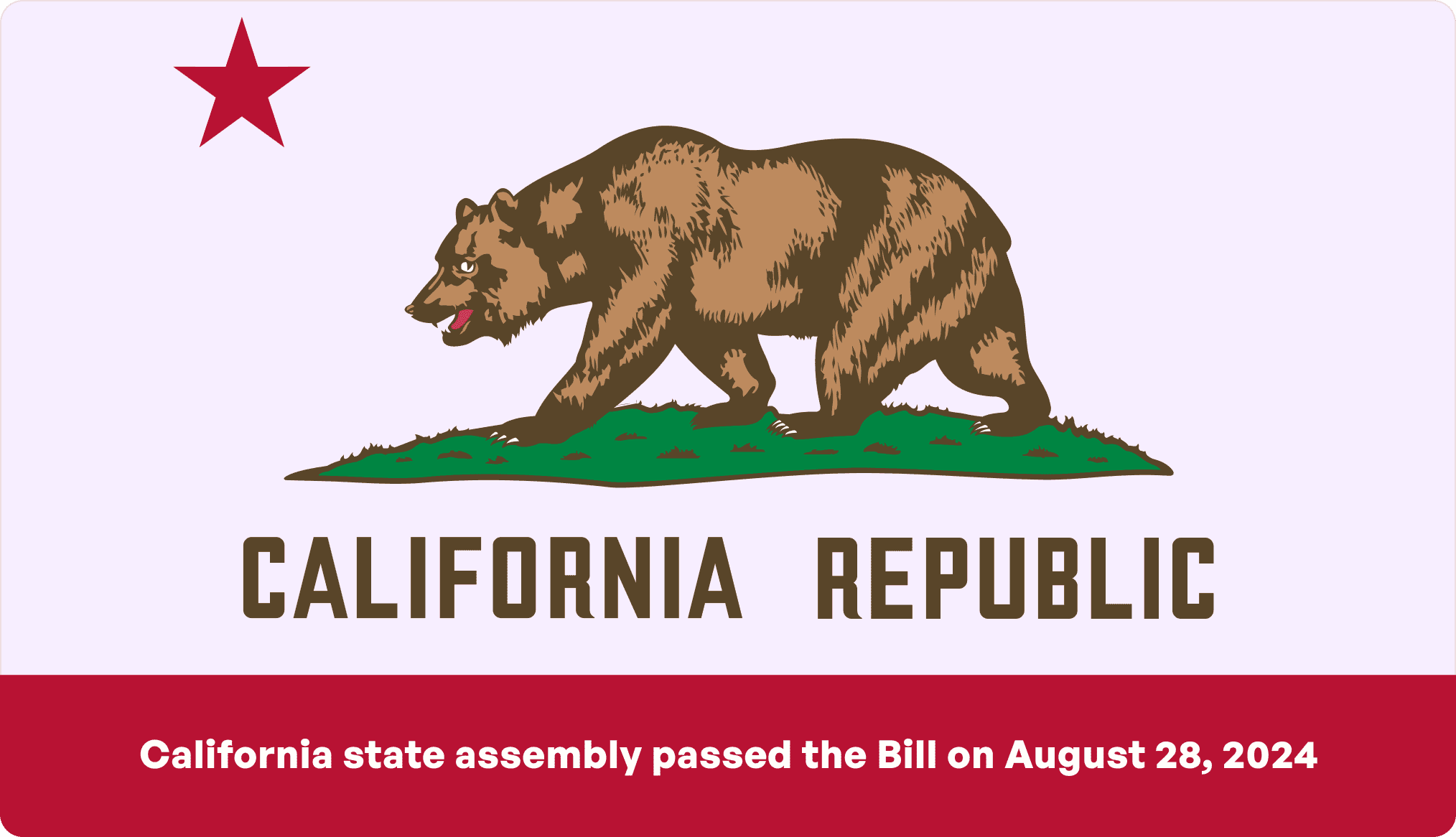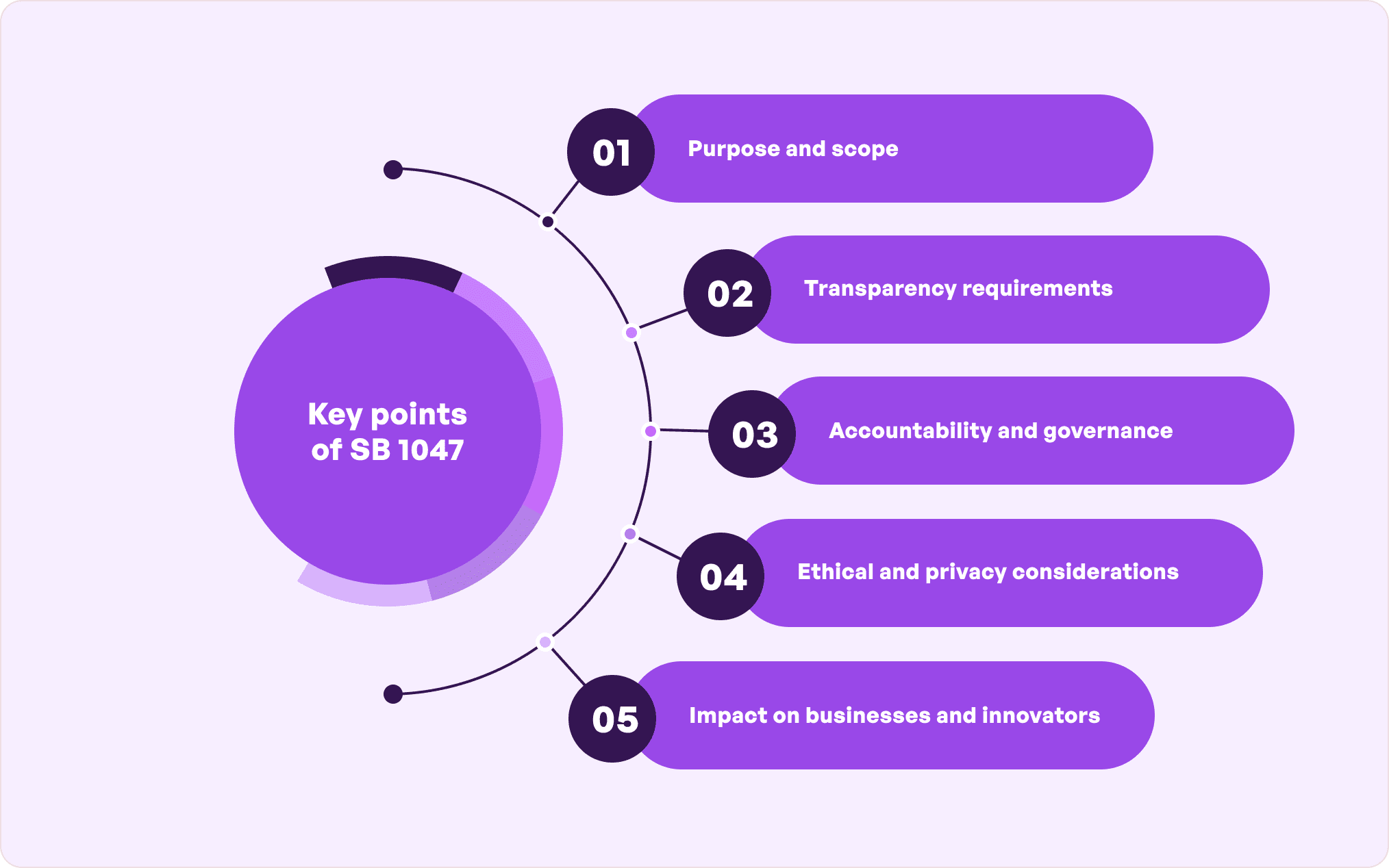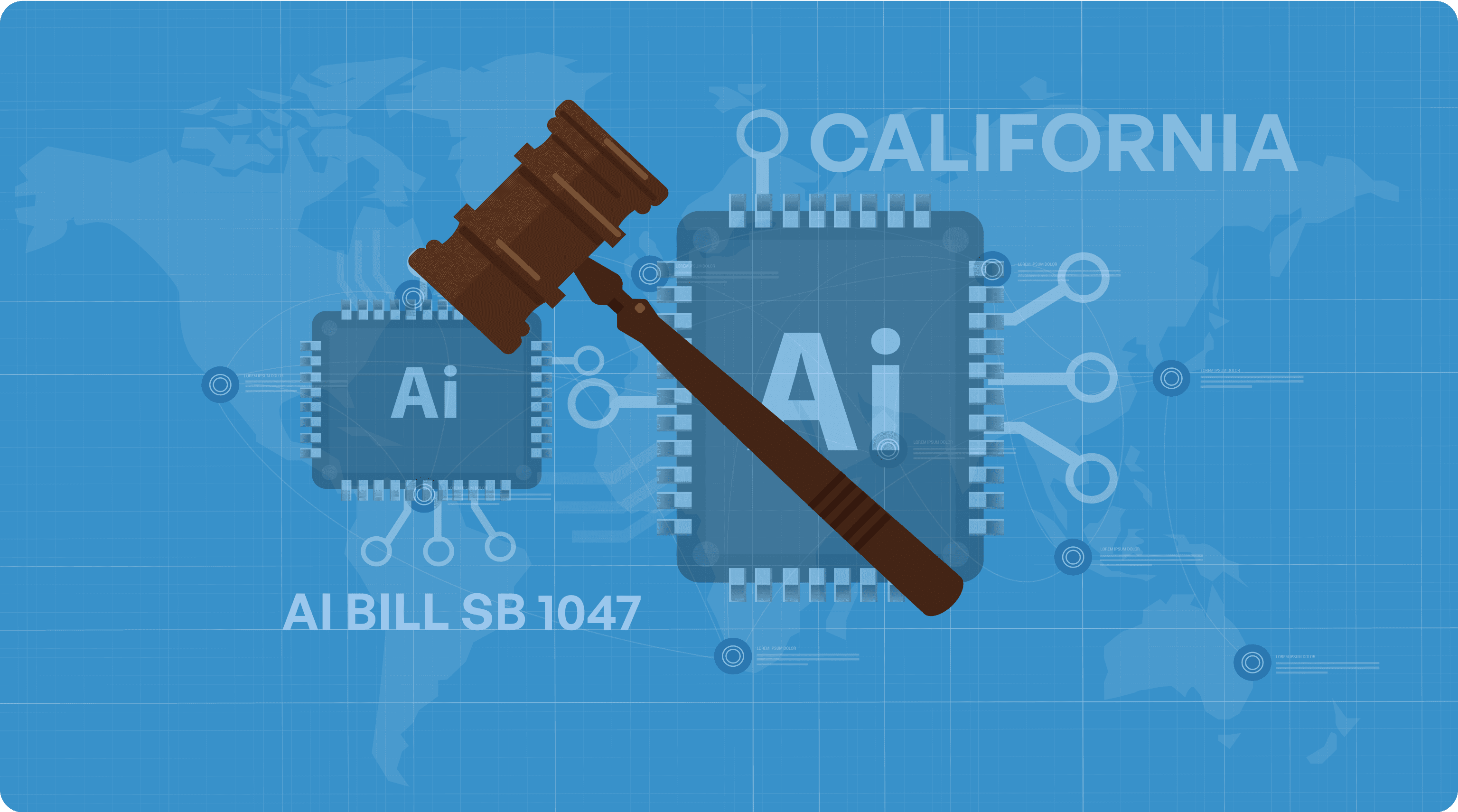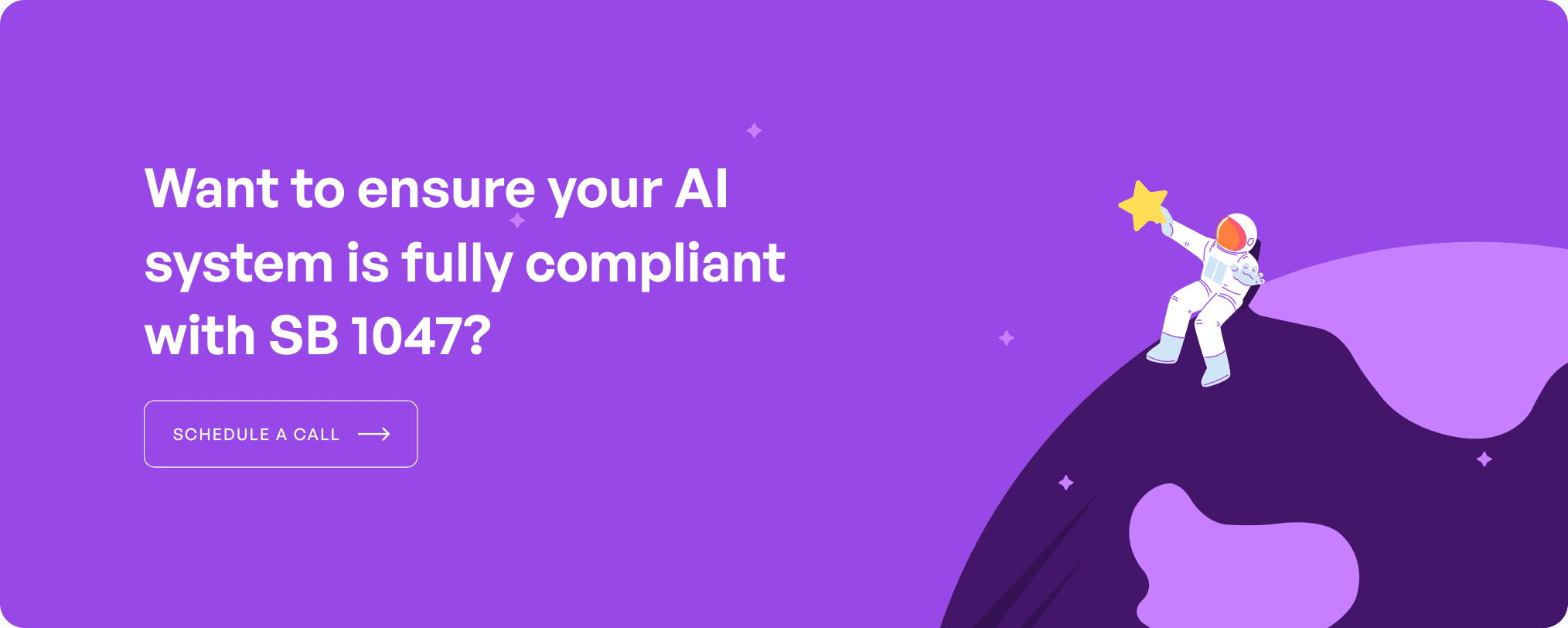SB 1047 key provisions come under one of the controversial California bills to prevent AI disasters that have been presented to put a stop to disasters coming in the future. Advocates claim it is a modest rule establishing “clear, predictable, common-sense safety standards” for artificial intelligence. Opponents argue it is a reckless and arrogant move that will “stifle innovation.”

Final votes have taken place in the state Senate, and the bill now heads to Governor Gavin Newsom. He must assess the most extreme conceivable threats of AI systems, including their potential role in human fatalities, against the possibility of stifling AI Regulation in California growth. He has until September 30 to sign or veto SB 1047.
The impact of AI regulations will increase the liability of any developer who spends more than $100 million on an AI model. The standards include Safety Testing, in which organizations must carefully test their AI models to guarantee they are safe. Developers would need to implement safeguards to keep their AI from inflicting harm. When an AI model causes severe harm, such as mass casualties or damages of more than $500 million, the state attorney general may take legal action against the developer.
External audits would be required to ensure the safety and compliance of AI models, and AI systems would need a built-in kill switch to shut them down promptly if necessary. The bill will also protect anyone who exposes harmful behavior at AI companies.
Table of contents
What does the bill do?
Advised by State Senator Scott Wiener, a Democrat said that it is a proposal that would mandate safety testing for many developers building the most powerful AI models, cost more than $100 million to construct, or demand a specific level of processing power.
Developers of AI software operating in the state would also need methods for turning off the AI models if they go awry, effectively a kill switch.
The bill will also help in granting the Attorney the authority to sue if developers fail to comply particularly in the event of an ongoing threat, such as AI taking over government services like the electricity grid.
Furthermore, the law would force developers to hire third-party auditors to evaluate company safety policies and provide additional safeguards to whistleblowers who speak out against AI abuses.
Need for California AI Bill SB 1047
The California AI Bill SB 1047 addresses the growing need to regulate artificial intelligence, ensuring that it is developed and used responsibly across industries. As AI becomes more integrated into decision-making processes—impacting everything from healthcare and employment to criminal justice—the bill is designed to safeguard the public by implementing transparency, accountability, and ethical standards.
Key reasons for the bill include:
- Preventing bias and discrimination: AI systems can perpetuate or even amplify biases, leading to unfair outcomes in areas such as hiring, lending, or legal sentencing. SB 1047 seeks to ensure that AI technologies are audited and tested in software development for fairness.
- Promoting transparency: Many AI systems operate as “black boxes,” where their decision-making processes are unclear. The bill emphasizes the need for clarity, allowing users to understand how decisions are made and challenging them if necessary
- Safeguarding privacy: AI often relies on large datasets, including personal information. SB 1047 aims to protect privacy by ensuring that AI systems comply with existing data protection regulations and adopt best practices for data security.
- Ensuring accountability: With AI influencing critical decisions, there is a need for accountability when things go wrong. The bill requires companies to take responsibility for the consequences of AI-driven decisions, ensuring there are processes in place to address potential harms.
By enforcing these standards, California aims to create a more ethical AI landscape that prioritizes fairness, privacy, and transparency while promoting innovation responsibly.
What do tech leaders say?
Tech companies creating AI, which can reply to cues with fully formed text, graphics, or music and perform repetitive jobs with no interaction, have urged for tighter safeguards for its implementation. They have expressed concerns that the program may one day evade human intervention and launch cyberattacks, among other things. However, they generally rejected SB 1047.
Many tech community members are still determining how the proposed bill might impact open-source AI models. There’s a growing tech community arguing that open-source models are crucial for rapidly developing safer AI applications. However, companies like Meta are concerned they could be held liable for regulating these open-source models if the bill is enacted. Wiener has expressed support for open-source initiatives, recent amendments to the bill have adjusted the criteria for which open-source models would fall under its regulations.
Key points of SB 1047
California’s AI safety bill SB 1047 creates a regulatory framework for AI technologies, addressing issues about transparency, accountability, and ethical use. As AI becomes more integrated into numerous industries, the bill promotes responsible innovation by emphasizing data privacy, fair algorithms, and supervision. Here’s a closer look at the essential provisions of this significant California AI law.

Purpose and scope
California AI bill SB 1047 aims to build a strong regulatory framework for AI technologies, prioritizing transparency, accountability, and ethical responsibility. The bill’s central objective is to set clear standards for developing and deploying AI systems, ensuring they are used responsibly, safeguarding individual rights, and fostering trust in AI-driven innovation. By establishing these guidelines, the legislation seeks to strike a balance between technological progress and the protection of privacy, fairness, and social impact.
Scope of Application: SB 1047 applies to a wide range of AI systems, including those used in critical sectors like finance, healthcare, and public services. It targets both large tech companies and startups, emphasizing that all entities utilizing AI must adhere to its provisions.
Transparency requirements
One of the cornerstone elements of SB 1047 is its emphasis on transparency. The bill mandates that companies disclose when AI systems are used in decision-making processes. This is crucial for fostering trust and allowing individuals to understand how decisions affecting them are made.
Algorithmic Transparency: Beyond mere disclosure, the bill requires companies to provide detailed information about how their AI algorithms work. This includes explaining the data sources used, the criteria for decision-making, and any biases that might affect outcomes. This transparency aims to mitigate concerns about opacity in AI operations and ensure that algorithms are designed and implemented fairly.
Accountability and governance
Oversight Mechanisms: To ensure compliance, SB 1047 establishes oversight mechanisms, including regulatory bodies tasked with monitoring AI practices. These bodies will review AI systems, assess their compliance with the bill’s provisions, and address any issues that arise.
Enforcement: Non-compliance with SB 1047 can result in significant penalties, including fines and restrictions on operations. The bill outlines a clear process for handling violations, ensuring that companies are held accountable for failing to meet the required standards.
Ethical and privacy considerations
Data Privacy: Protecting user data is a critical aspect of SB 1047. The bill includes provisions to safeguard personal information, requiring companies to implement robust data protection measures. This aligns with broader privacy regulations, such as the California Consumer Privacy Act (CCPA), and reinforces the need for responsible data handling in AI applications.
Ethical Guidelines: SB 1047 also sets forth ethical guidelines for AI development. This includes ensuring that AI systems do not perpetuate discrimination or bias and are designed to respect fundamental human rights. These guidelines aim to promote fairness and equity in AI applications, addressing ethical concerns that have arisen with the widespread use of AI.
Impact on businesses and innovators
Compliance Costs: For many businesses, particularly startups, the compliance requirements of SB 1047 could represent a significant financial burden. Companies will need to invest in systems and processes to ensure transparency and accountability, which could impact their operational costs and resource allocation.
Innovation: While the bill aims to regulate AI, it also raises concerns about its potential impact on innovation. Striking a balance between regulation and fostering technological advancement is crucial. If implemented effectively, SB 1047 could set a standard that encourages ethical innovation without stifling creativity.
What can AI entrepreneurs do?
For AI entrepreneurs navigating the new regulations under SB 1047, there are several proactive steps to ensure compliance while maintaining innovation:
- Invest in transparency: AI startups should build systems that prioritize transparency, providing clear information on how their algorithms work and ensuring data use is properly disclosed to users.
- Focus on ethical AI: Implementing ethical guidelines in AI development, such as eliminating biases in algorithms and protecting user privacy, will be key in complying with the new regulations.
- Collaborate with legal and compliance experts: Entrepreneurs should work closely with legal experts to ensure their AI solutions align with SB 1047’s requirements, avoiding potential penalties and fostering trust with consumers.
- Adapt to accountability standards: Building mechanisms for oversight and self-governance will be crucial for startups. This includes monitoring AI system decisions and maintaining documentation for regulatory review.
- Prepare for costs: Startups should budget for compliance-related expenses, such as transparency system upgrades, data protection protocols, and regular audits.
How we can help
At Simublade, we can support AI entrepreneurs in adapting to SB 1047 with services tailored to these new requirements:
- AI auditing and compliance consulting: We help startups ensure their AI systems comply with the bill’s transparency and ethical standards through thorough audits and expert consultation.
- Ethical AI integration: Our team specializes in embedding ethical frameworks into AI development, making sure your systems are fair, unbiased, and compliant.
- Data privacy and security solutions: We offer cutting-edge solutions for safeguarding user data, ensuring you meet SB 1047’s data privacy requirements, and enhancing user trust.
- Tech-Driven transparency: We assist entrepreneurs in designing transparent AI systems that communicate how data is used and decisions are made, aligning with the bill’s transparency mandates.
By partnering with us, AI entrepreneurs can focus on innovation while we handle the complexities of compliance and regulatory adherence.
What’s next for AI – Through the SB 1047 lens
1. Implementation timeline
Phases of rollout: SB 1047’s implementation will occur in phases, starting with a pilot program for select industries before broader application. This phased approach allows time for businesses to adapt to the new requirements and for regulatory bodies to refine their oversight processes.
Transition period: The bill includes a transition period during which companies can prepare for compliance. This grace period provides an opportunity for businesses to adjust their practices, update their systems, and ensure they meet the new standards before facing enforcement actions.
2. Future legislative developments
Anticipated Amendments: As AI technology continues to evolve, SB 1047 will likely be subject to amendments and updates. Policymakers may adjust the bill’s provisions to address emerging challenges and incorporate new technological advancements.
National and global impact: California’s regulatory approach may influence other states and countries, prompting a ripple effect in global AI regulation. The state’s actions could serve as a model for other jurisdictions seeking to implement similar frameworks, shaping the future of AI governance worldwide.
3. Industry reactions
Business Perspectives: Reactions from tech companies and industry leaders have been mixed. Some view SB 1047 as a positive step toward responsible AI development, while others express concerns about the potential burden of compliance and the impact on innovation. The bill’s effects on business practices will likely become clearer as it is implemented and enforced.
Public opinion: Public response to SB 1047 has been generally supportive, particularly among advocates for privacy and ethical technology use. The bill’s focus on transparency and accountability aligns with growing demands for greater oversight in AI, reflecting public concerns about how technology affects their lives.
4. Emerging trends in AI regulation
Global Trends: SB 1047 fits into a broader trend of increasing regulation in the tech industry. Around the world, governments are exploring ways to regulate AI to address issues like bias, privacy, and accountability. This global movement reflects a growing recognition of the need for governance in the rapidly advancing field of artificial intelligence.
Technological advances: As AI technology continues to advance, regulatory approaches will need to adapt. Innovations such as quantum computing and advanced machine learning techniques could present new challenges that require updated regulations. Policymakers will need to stay informed and proactive to address these developments effectively.
Conclusion
California’s AI Bill SB 1047 represents an important step toward establishing an organized approach to AI regulation. The bill seeks to ensure that AI technologies are created and used ethically by emphasizing openness, accountability, and ethical considerations. Implementing SB 1047 will create issues for enterprises, but it will also provide a chance to establish a precedent for responsible AI governance.
It might seem strange that legislation in just one US state has so many people wringing their hands. But remember: California is not just any state. It’s where several of the world’s leading AI companies are based. AI app developers create innovative, compliant solutions, balancing cutting-edge technology with regulatory requirements.
FAQs
Q1: What is California AI Bill SB 1047, and what are its main objectives?
Ans: California AI Bill SB 1047 aims to regulate the development, deployment, and transparency of AI systems, focusing on ethical use, accountability, and data privacy protections.
Q2: What are the ethical considerations driving AI regulation globally?
Ans: Ethical considerations driving global AI regulation include privacy protection, bias mitigation, accountability, transparency, safety, and preventing misuse in surveillance, discrimination, and autonomous decision-making.
Q3: What are the implications of AI regulation on innovation?
Ans: AI regulation can balance innovation with safety, but excessive restrictions may stifle creativity, while insufficient oversight could lead to ethical concerns.
Q4: How does the EU AI Act differ from California ai bill?
Ans: The EU AI Act emphasizes regulation of AI risks and accountability, while California’s AI bill focuses more on transparency, fairness, and consumer protection.





